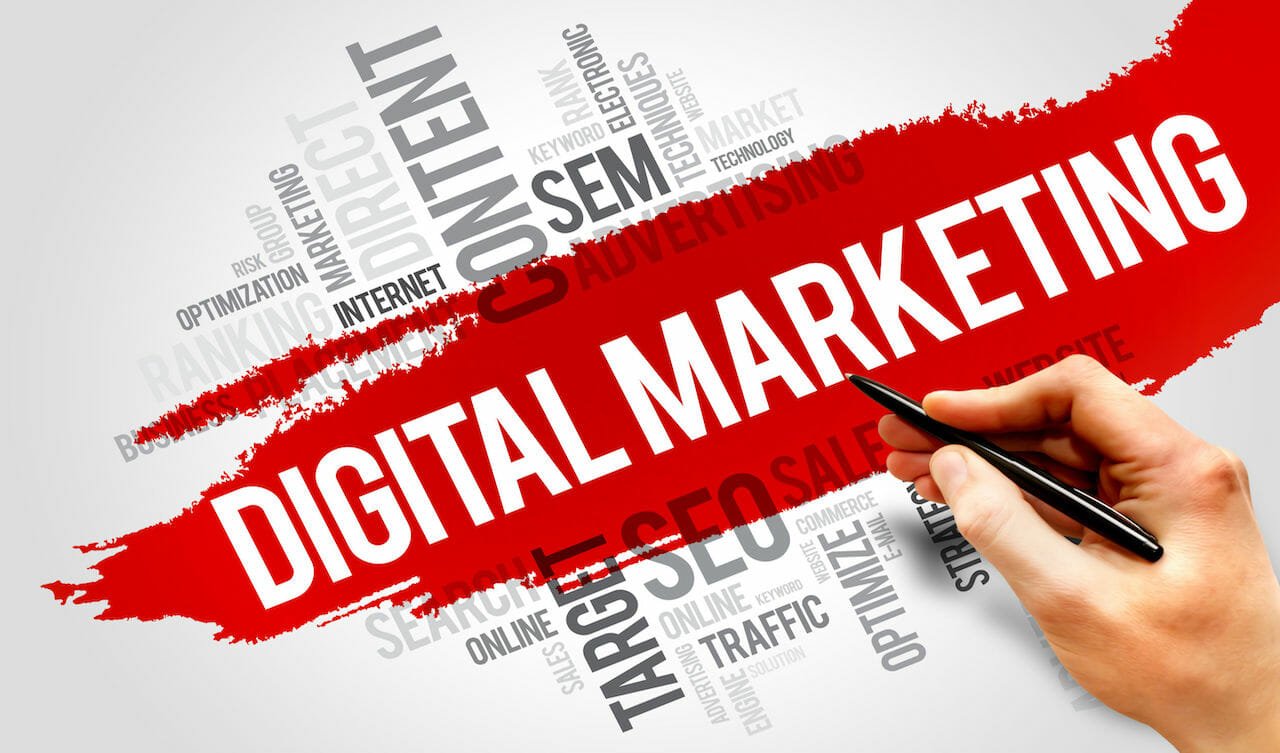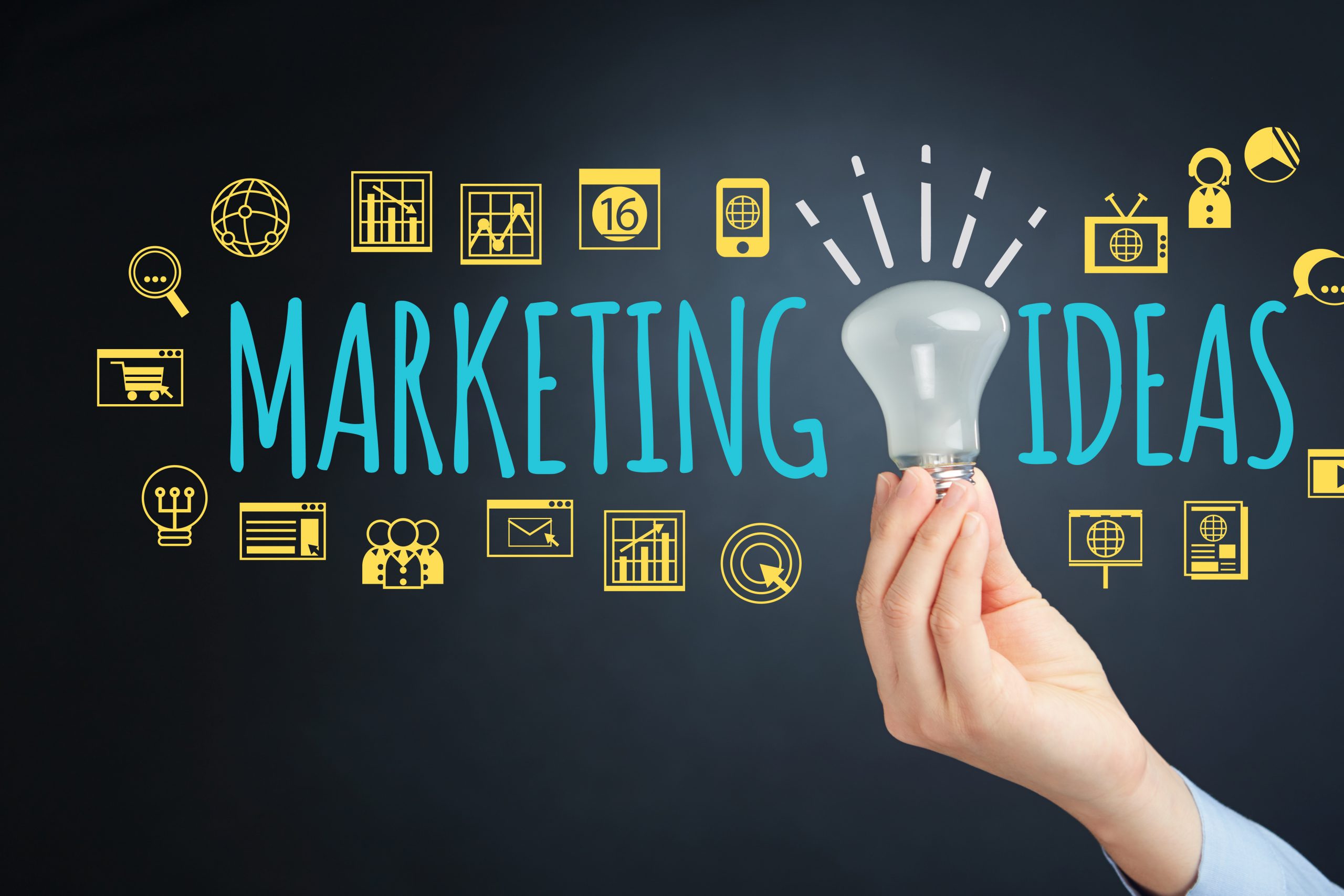
Digital Marketing Agency Share Their Secrets to Lead Generation Success
January 31, 2022
Best Ways To Market Your Internet Business Or Product
March 20, 2022What will be the future of Digital Marketing using Artificial intelligence
Nowadays, in the case of Artificial Intelligence (AI), they might be thinking of computers that speak to us via Alexa and Siri or perhaps more elaborate projects such as autonomous cars. These are fascinating; however, the reality of AI is that it’s a multitude of tools and applications running in the background that make our lives simpler by automating work or making predictions.
This kind of incident happens across every industry and business activity, especially in marketing. Using AI to get the product or services to people interested is the norm while we might not know it!
In the business world nowadays, the term AI was previously used to describe software capable of learning and getting more proficient at what it does with no input from humans. It means that even though we’ve grown accustomed to using machines to help us in the task of lifting hefty objects, they’re equipped to aid us in jobs that require much decision-making thinking too.
Many of the previously required human intervention questions, for instance, “will this person be interested in my products?” and “what results will I get from this advertising campaign?” Computers can now provide answers if they can access the correct data because computers respond to queries faster than humans and can connect the various questions to estimate the most likely buyer to buy your product and where the most effective places to advertise are.
It is the primary concept that drives every business that uses AI these days – automating the process of learning and making decisions to produce information (usually called “insight”) that helps increase your business’s efficiency. Marketing is an area where we have used it with great success!
AI Driven targeted Marketing
The main advantage of AI for marketing is boosting the ROI of marketing by making it one of a company’s most expensive expenses more efficient. In the past, before the advent of online ads, companies were required to pay massive sums of money to run radio, newspapers, or TV ads, with the knowledge that just a tiny percentage of the people who saw their ads would ultimately become consumers. It was highly inefficient, but companies had no choice to be recognized as market-leading.
In the age of the internet, we’ve developed the ability to collect many details about customers who want to know more about our products and services. The first breakthroughs came from companies such as Amazon making use of their technology to create recommendation engines and Google and Facebook making use of their focused advertisement platforms. Nowadays, each of these platforms has been upgraded with machine learning technology that allows them to improve their efficiency because they have more data about their customers and shopping habits.
AI-driven content marketing
The growing usage of social media for marketing and the ever-increasing demand for internet-based content has led to content-based advertising becoming the most well-known marketing used across various industries. AI helps us determine what content our potential and current clients would like to read and the most efficient methods to make our content available. Marketing professionals have always sought to find formulas for creating advertisements that encourage users to share their messages with their friends. Today, it is possible to do this in an automated manner by using various artificial intelligence-powered programs. For instance, headline algorithm generation can be tracked easily. We can evaluate the effectiveness of their algorithms and then modify their output to create more accurate metrics. Such as the frequency of emails being opened or the share rate for content from social media.
A level further AI develops the capability to manage the entire production process. The content produces images and texts that will be well-received by the target public. The trending word in this space is personalization. Consumers receive content tailored to their needs or even with references or other information that the AI knows is relevant to their preferences. Then, this is integrated into the general marketing message.
AI can also be important in determining what stage of the purchase process the buyer is in. If it detects that the customer is “shopping around” – comparing the various options and products accessible, it will offer information that will help distinguish your product or service from competitors. If it discovers that they’re prepared to purchase, it’s in a position to direct users to your site with promotions that encourage customers to “act now” to take advantage of a deal for a limited time.
A digital marketing firm called the Decodya Concept Pvt Ltd has been embracing the most recent developments by using different AI-based technologies to improve the quality of services. Sandip Karmakar CTO stated:
“We’ve been using AI tools for a while now, in particular automatically checking website designs in hundreds of screen and browser types, this speeds up our design and development process”.
The team also uses their AI-created Web audit downloaded from their website. It then runs without input from humans.
How do Micro-influencers work?
Influencers are a massive trend in marketing at present, and AI algorithmic systems are in use to ensure that people most likely to appeal to you appear in feeds and search results through social media.
Soon, marketers will employ AI to identify smaller influencers that tend to be suitable matches for their brand and the audience. It has led to the rise of “micro-influencers” – typically everyday people, but not necessarily famous who have a particularization they’ve employed to create an exclusive group of people who are devoted to opinion. AI allows companies to find those influencers who are the right audience for their products across different audiences and categories. AI assists in determining the right timing for companies to give 100 people $1,000 to talk about their product instead of paying 100,000 dollars in exchange for Justin Bieber or a Kardashian. It’s all about efficiency, which is achieved by analyzing the data, not simply following what a market expert believes is the best method.
AI implementation in any CRM
Customer relations management is a crucial skill for marketers to master because customers are typically the primary income source for businesses.
The customers will be automatically targeted with specific promotions or incentives to keep their loyalty. AI-enabled marketers are increasingly and more relying on chatbots that are powered through natural processes of language.
This process allows for differentiation of customers’ queries, and thus the ones that require a fast response can be swiftly taken care of to lessen the risk of customer dissatisfaction. AI-driven CRM could also help companies better forecast sales across all areas in which the business operates, which means that inventory and resources are effectively distributed. Furthermore, it is possible to verify the accuracy of data in the CRM system by noting the records of customers that have duplicates or mistakes that might be present.
Internet Marketers are on the way with Web 3.0
If you’re working in marketing, it’s easy to be concerned about an era where the people you interact with will become redundant. It’s a fact that there is a good chance, based on recent predictions, that the state of AI will generate more opportunities for employment than it will take away.
Your work will change but not. Marketers will spend less time on technological issues like forecasting or segmenting customer segments and more time focusing on new and strategic aspects. People who are proficient in technology and can identify innovative solutions. Once they become readily available will be advantageous to their businesses and could have a promising future!


